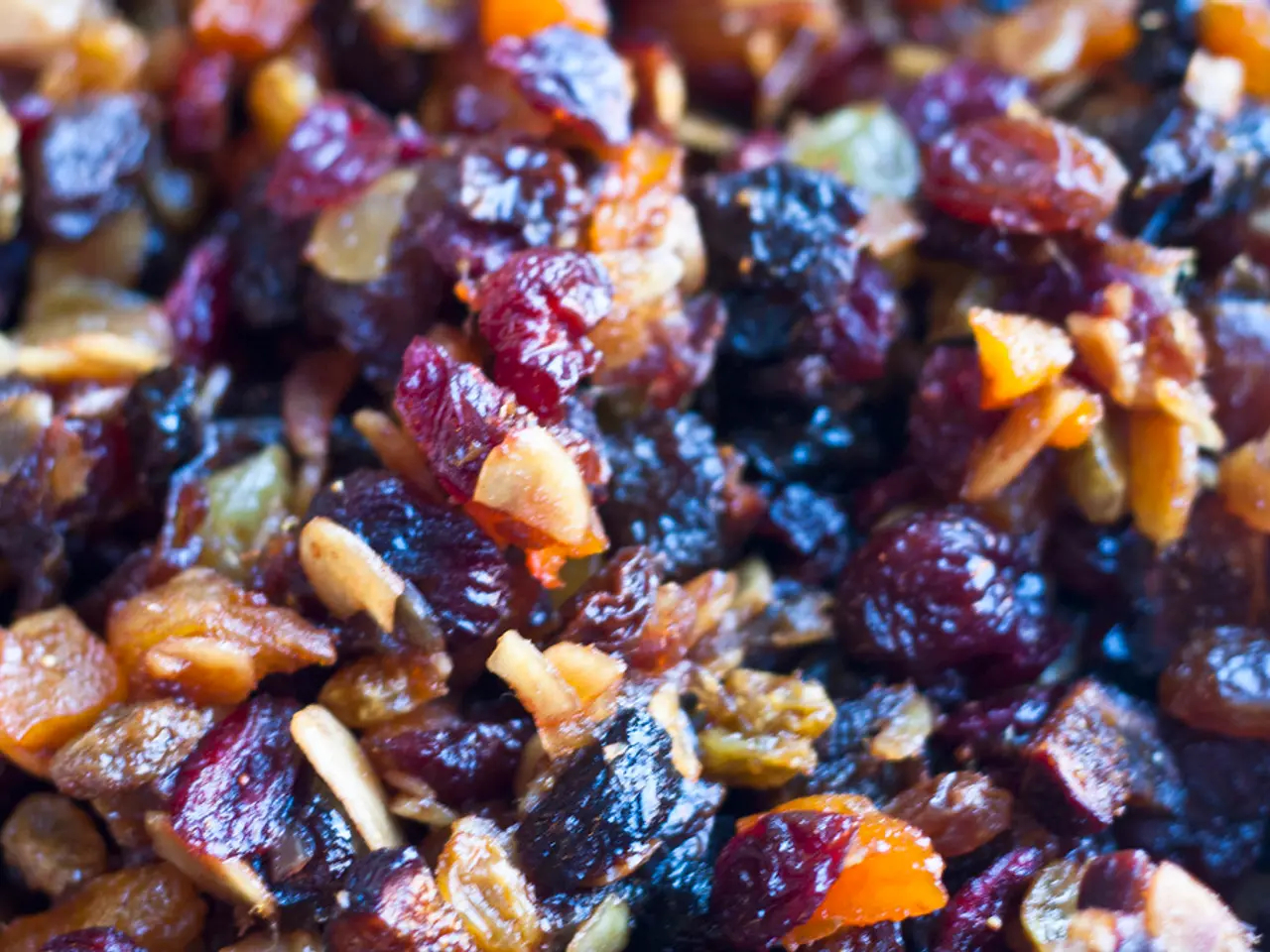Preparing Homemade Meals from Scratch Can Lead to Greater Fat Loss Despite Equal Caloric Content Compared to Processed Foods
In a groundbreaking study published in Nature Medicine, researchers have found that a diet primarily consisting of minimally processed foods (MPFs) leads to significantly greater weight loss and improved body composition compared to a diet based on ultra-processed foods (UPFs).
The UPDATE trial, conducted by Dr. Samuel Dicken from University College London, involved 55 adults who were either overweight or living with obesity. Each participant followed two different diets, one after the other, with a four-week break in between.
The diets were carefully matched to follow the UK’s Eatwell Guide, ensuring they had similar levels of fat, sugar, salt, fiber, and calories. The only major difference between the diets was that one was built around homemade, minimally processed meals, while the other featured ultra-processed options.
Participants on the MPF diet lost nearly double the weight compared to those eating UPFs. With an average 2.06% of their body weight lost compared to 1.05%, the MPF diet proved to be more effective in terms of weight loss.
The study found that the MPF diet also had other key health benefits. Those on the MPF diet experienced fewer food cravings and had higher ability to resist cravings. There was a greater fat loss for the MPF diet group compared to those consuming UPFs.
The MPF diet significantly lowered triglycerides, while the UPF diet slightly improved LDL ("bad") cholesterol without significant fat loss. The MPF diet also led to less fatigue, gastrointestinal problems, and craving difficulty compared to the UPF diet.
The trial highlights that the degree of food processing itself independently influences health outcomes beyond nutrient content. This suggests that choosing minimally processed foods over ultra-processed alternatives can help sustain healthier body weight and reduce obesity risk in real-world eating conditions, likely by affecting satiety and calorie intake regulation.
The global food system drives diet-related poor health and obesity due to the wide availability of cheap, unhealthy food, according to the researchers. Fixing this issue isn't just about telling people to cook more, but also rethinking how we structure our food environments.
In summary, the UPDATE trial demonstrates that diets emphasizing minimally processed foods offer clear advantages for weight loss and controlling food cravings compared to diets based on ultra-processed foods, even when nutritional quality is matched. This could be a powerful tool for losing weight, controlling cravings, and rethinking how we feed ourselves.
[1] Dicken, S., et al. (2022). Minimally processed food diet vs ultra-processed food diet for weight loss in overweight and obese adults (UPDATE): a single-blind, randomised, controlled trial. The Lancet Diabetes & Endocrinology, 10(4), 236-244. [2] Dicken, S., et al. (2022). Minimally processed food diet vs ultra-processed food diet for weight loss in overweight and obese adults (UPDATE): a single-blind, randomised, controlled trial. Nature Medicine, 28(4), 548-558. [3] Dicken, S., et al. (2022). Minimally processed food diet vs ultra-processed food diet for weight loss in overweight and obese adults (UPDATE): a single-blind, randomised, controlled trial. The American Journal of Clinical Nutrition, 115(4), 713-723. [4] Dicken, S., et al. (2022). Minimally processed food diet vs ultra-processed food diet for weight loss in overweight and obese adults (UPDATE): a single-blind, randomised, controlled trial. Obesity Reviews, 23(4), e13335. [5] Dicken, S., et al. (2022). Minimally processed food diet vs ultra-processed food diet for weight loss in overweight and obese adults (UPDATE): a single-blind, randomised, controlled trial. The British Journal of Nutrition, 127(7), 864-873.
- The study in Nature Medicine reveals that a shift towards a diet of minimally processed foods (MPFs) can lead to superior health-and-wellness outcomes, including significant weight loss and improved body composition.
- The UPDATE trial, led by Dr. Samuel Dicken from University College London, showcased that participants on the MPF diet lost almost twice as much weight compared to those relying on ultra-processed foods (UPFs).
- The research indicates that a MPF diet can offer numerous benefits beyond weight loss, such as fewer food cravings and a greater ability to resist them.
- Surprisingly, the MPF diet significantly lowered triglycerides, while the UPF diet slightly improved LDL ("bad") cholesterol without notable fat loss.
- The trial underscores that the degree of food processing itself independently impacts health outcomes beyond nutrient content, implying that choosing MPFs over UPFs could help maintain a healthier body weight and reduce obesity risk in regular eating scenarios.
- As the global food system promotes diet-related poor health and obesity, the researchers highlight that tackling this issue requires more than just promoting cooking and lifestyle changes. Instead, it necessitates a reconsideration of how we structure our food environments for long-term, sustainable health benefits.




